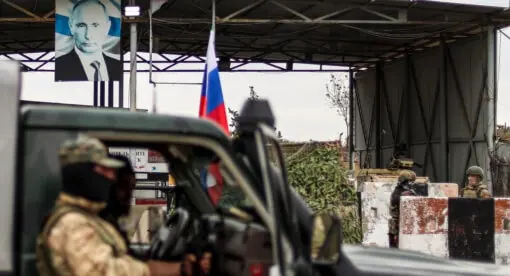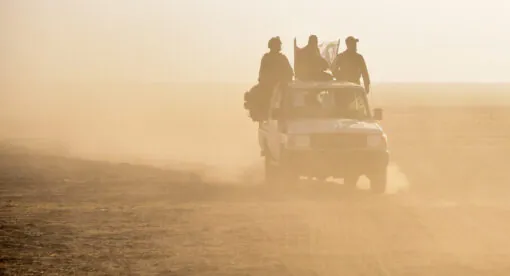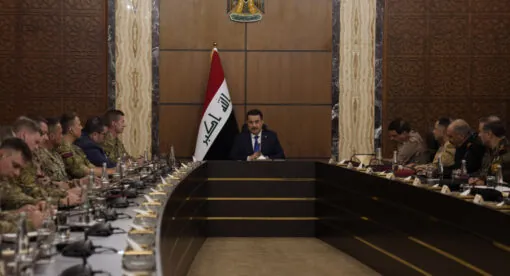The author of The Battle for Pakistan: The Bitter US friendship and a Tough Neighborhood (2020), Shuja Nawaz is a Distinguished Fellow with the South Asia Center of the Atlantic Council, where he served as the founding director of the Center (2009-14). Previously, Mr. Nawaz was with the International Monetary Fund (IMF) from 1975 to 2005, during which he headed three separate divisions. Nawaz was also a director at the International Atomic Energy Agency in Vienna (1991-2001). He has also worked for the New York Times and the World Health Organization, and is the author of Crossed Swords: Pakistan, its Army, and the Wars Within (2017).

Home / Book Talk Webinar with Shuja Nawaz
Book Talk Webinar with Shuja Nawaz
1 min read
Related Articles

The Kurdish Gas Gambit
The Kurdistan Regional Government’s (KRG) recent multibillion-dollar gas agreements with U.S. energy companies represent a significant and multifaceted strategic gambit.

Russia’s Potential Withdrawal from Syria and Pivot to Libya
Russia’s legacy of supporting Syrian President Bashar al Assad’s regime could either lead to its eviction from Syria or its

Iraqi Military Forces’ Capacity in the Wake of a Likely U.S. Withdrawal from Iraq
Read the Policy Report Here In the wake of an intense regional escalation that severed Iran and its proxies across

After the Coalition: Evaluating the Next Steps for Foreign Forces in Iraq and Syria
Introduction On Sept. 27, 2024, the United States and Iraq announced a two-phase transition plan for the gradual drawdown of